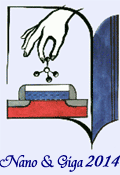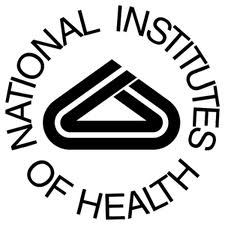|
Co-chairmen: Gyula Eres and Pawel Hawrylak
| |
The spring school will feature tutorial lectures by leading industrial researchers and noted university professors
focusing on current scientific and technological challenges. The School is a part of the NGC2014 Conference and is
followed by the three-days Symposium. All registered participants of the NGC2014 conference
are automatically entitled to participate in the School. The school is also open to local students in Arizona and is offered
without any fee through the kind support and encouragement of the conference organizers and sponsors. Registration is, however, required. Please register at the
School Registration Page.
|
|
Registered school participants are also welcome to attend the Poster Session on Thursday, March 13, from 6 to 9 pm.
|
|
Breakfasts, lunches and refreshments are available free for school participants at the school venue (Coor Hall, room 170)
due to the support of the sponsors of the RuSciTech Forum USA 2014 and food is also free to them at the Poster Session venue (Memorial Union, 2nd floor, Ventana Ballroom, #241C) due to the support of Bio Logic.
|
|
Registration fee for participation at the symposium (school sessions included) has been reduced for Arizona State University students to the early registration fee (150 US dollars) due to the the support from ASU Office of Knowledge Enterprise Development.
For further details, please, visit Registration Page.
|
|
March 10: School Session I (8:30AM-12:30PM)
Coor Hall, room 170
Co-Chairmen: Stephen Goodnick and Alex Demkov
|
| 8:30AM-9:30AM |
Massimiliano Di Ventra, University of California San Diego, San Diego, California, USA
Fundamental Properties of Memristive, Memcapacitive and Meminductive Systems
|
| 9:30M-10:30AM |
Francis Balestra, Grenoble Institute of Technology, Grenoble, France
Ultra Low Power Device Operation
|
| 10:30am-11:30am |
Oleg Berman, New York City College of Technology, Brooklyn, New york, USA
Graphen Based Nanophotonics
|
| 11:30PM-12:30PM |
Matthias Wuttig,
RWTH Aachen University, Aachen, Germany
Phase Change Materials: From Optical Data Storage to Novel Electronic Memories
|
| 12:30PM-1:30PM |
LUNCH
|
March 10: School Session II (1:30AM-6:30PM)
Coor Hall, room 170
Co-Chairmen: Gyula Eres and Matthias Wuttig
|
| 1:30PM-2:30PM |
Juan Ramón Morante, IREC (Catalonia Institute for Energy Research) and University of Barcelona, Barcelona, Spain
Nanostructured Electrodes in Photoelectrochemical Cells for Solar Fuel Production
|
| 2:30PM-3:30PM |
Marek Korkusinski,
National Research Council of Canada, Ottawa, Ontario, Canada
Atomistic Simulations of Electronic and Optical Properties of Semiconductor Nanostructures
|
| 3:30PM-4:30PM |
Roza Kotlyar,
Intel, Portland, Oregon, USA
Device Modeling Challenges in the Realm of Overlapping Physical Scales: from Atomistic to Continuum, from Coherent to Diffusive Transport
|
| 4:30PM-5:30PM |
Alex Demkov, University of Texas at Austin, Austin, Texas, USA
Applications of Functional Oxide Heterostructures
|
| 5:30PM-6:30PM |
Igor Zutic,
University at Buffalo, Buffalo, New York, USA
Putting Spin in Lasers
|
March 11: School Session III (8:30AM-12:30PM)
Coor Hall, room 170
Co-chairmen:
Francis Balestra and Pawel Hawrylak
|
| 8:30AM-9:30AM |
Philip G. Collins, University of California - Irvine, Irvine, California, USA
Single Molecule Bioelectronics
|
| 9:30AM-10:30AM |
Alek Dediu,
Institute for Nanostructured Materials, Bologna, Italy
Organic Spintronics: the State of the Art
|
| 10:30AM-11:30PM |
Michael Galperin,
University of California San Diego, San Diego, California, USA
Molecular Optoelectronics: On the interaction of Molecular Junctions with Light
|
| 11:30PM-12:30PM |
Mona Jarrahi, University of Michigan, Ann Arbor, Michigan, USA
Advanced Terahertz Optoelectronics based on Plasmonic Nanostructures
|
| 12:30PM-1:30PM |
LUNCH |
March 11: School Session IV (1:30PM-6:30PM)
Coor Hall, room 170
Co-chairmen:
Philip Collins and Vladimir Mitin
|
| 1:30PM-2:30PM |
Lynden Archer, Cornell University, Ithaca, New York, USA
Nanoporous Hybrid Materials - Transport Phenomena and Applications in Secondary Batteries
|
| 2:30PM-3:30PM |
Stephen Goodnick,
Arizona State University, Tempe, Arizona, USA
Role of Nanotechnology in Advanced Concept Photovoltaics
|
| 3:30PM-4:30PM |
Austen Angell, Arizona State University, Tempe, Arizona, USA
Chemistry of Electrical Energy Storage and its Back Conversion to Electricity
|
| 4:30PM-5:30PM |
Peter Bäuerle, Ulm University, Ulm, Germany
Organic photovoltaics : With tailored Materials on the Move to Future Technology
|
| 5:30PM-6:30PM |
Jurriaan Schmitz,
University of Twente, Enschede, Netherlands
CMOS post-processing for monolithic microsystems
|
|





